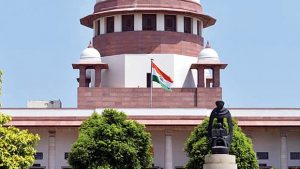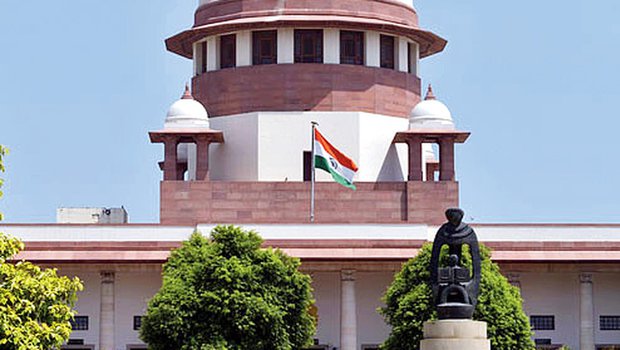 Janjivan Bureau / New Delhi : Citing the wish of the founding fathers, the Supreme Court has lamented that no steps have been taken for framing of a Uniform Civil Code (UCC) despite exhortations from it.
Janjivan Bureau / New Delhi : Citing the wish of the founding fathers, the Supreme Court has lamented that no steps have been taken for framing of a Uniform Civil Code (UCC) despite exhortations from it.
The Bench of Justice Deepak Gupta and Justice Aniruddha Bose cited Goa as a “shining example” where a UCC is applicable to all, regardless of religion, “except while protecting certain limited rights”.
The court’s comments have come at a time when there is a buzz about the BJP-led government going for it. This is the second time in the recent past that the top court has favoured UCC. In October 2015, while dealing with a divorce case under the Christian Divorce Act, a Bench headed by Justice Vikramajit Sen (since retired) had asked the government to take a quick decision on the UCC to end the confusion over personal laws applicable to different communities.
The latest observation came in a verdict on the Portuguese Civil Code, 1867. The Bench said the Code would govern rights of succession and inheritance in respect of properties of a Goan domicile situated anywhere in the country.
“It is interesting to note that whereas the founders of the Constitution in Article 44 in Part IV dealing with the Directive Principles of State Policy had hoped and expected that the state shall endeavour to secure for the citizens a Uniform Civil Code throughout the territories of India, till date no action has been taken in this regard,” it said.
“Though Hindu laws were codified in 1956, there has been no attempt to frame a Uniform Civil Code applicable to all citizens of the country despite exhortations of this court,” it noted.
The issues before it were: whether the Portuguese Civil Code can be said to be a foreign law and the principles of private international law are applicable.
The top court said these laws would not have been applicable unless recognised by the Indian government and the Portuguese Civil Code continued to apply in Goa only because of an Act of Parliament of India.
“Therefore, the Portuguese law which may have had foreign origin became a part of the Indian laws, and, in sum and substance, is an Indian law. It is no longer a foreign law. Goa is a territory of India; all domiciles of Goa are citizens of India; the Portuguese Civil Code is applicable only on account of the Ordinance and the Act referred to above,” it held.
The second issue was if the property of a Goan domicile, situated outside the territory of the state, would be governed by the Portuguese Civil Code or by the Indian Succession Act or by personal laws, as applicable in the rest of the country.
“There are no Goan citizens; there can be domiciles of Goa but all are citizens of India. As Indian citizens, under Article 19 of the Constitution, they are free to move to any part of the country, reside there and buy property subject to the local laws and limitations,” the bench noted.
It said the Portuguese Civil Code, being a special Act applicable only to domiciles of Goa, would be applicable to Goan domiciles in respect to all the properties within and outside Goa.

















